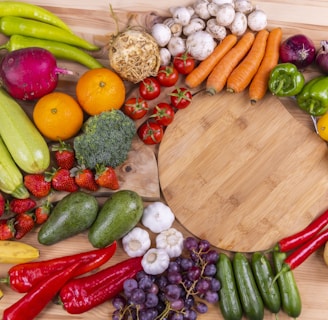The Best Vegetables for Dementia: Nourishing the Brain
Dementia, a term that encompasses a range of cognitive decline conditions such as Alzheimer’s disease, affects millions of individuals and their families worldwide. While there is no cure, research suggests that diet, particularly vegetable intake, can play a crucial role in managing and potentially reducing the risk of dementia. In this article, we’ll explore the best vegetables to incorporate into a diet for those looking to support brain health.
5/30/20242 min read


Leafy Greens: The Brain’s Best Friend
Leafy greens are at the forefront of brain-healthy vegetables. Packed with antioxidants, phytonutrients, and folate, they are identified as the number one food group to fight cognitive decline1. Here’s why they’re beneficial:
Kale, Spinach, and Bok Choy: These greens are full of vitamins A, C, E, and K, which are known to protect the brain against oxidative stress1.
Folate: Found in abundance in leafy greens, folate is essential for brain function and may help reduce the risk of dementia1.
Colorful Vegetables: A Spectrum of Nutrients
Vegetables rich in carotenoids not only add vibrant colors to your plate but also bring a host of brain-boosting benefits:
Carrots, Squash, and Sweet Potatoes: These are excellent sources of beta-carotene, which is linked to improved cognition2.
Bell Peppers and Tomatoes: High in vitamin C and other antioxidants, they help in protecting the brain from damage2.
Cruciferous Vegetables: The Detoxifiers
Cruciferous vegetables like broccoli and Brussels sprouts contain compounds that may help lower the risk of memory loss:
Sulforaphane: A compound found in cruciferous vegetables, it has potent anti-inflammatory properties that may protect against neurodegenerative diseases3.
Allium Vegetables: The Flavorful Protectors
Garlic, onions, and leeks fall under the allium category and are known for their health benefits, including potential protective effects against dementia:
Antioxidants: These vegetables are high in antioxidants, which combat the free radicals that can lead to cognitive decline4.
Conclusion: A Rainbow on Your Plate
Incorporating a variety of vegetables into your diet can provide a multitude of benefits for brain health. While no single food is a magic bullet, a diet rich in vegetables, especially those mentioned above, can contribute to a healthier brain and potentially lower the risk of dementia. It’s important to remember that these dietary suggestions should complement other lifestyle factors such as regular exercise, adequate sleep, and mental stimulation.
For those looking to delve deeper into the connection between diet and dementia, resources like Healthline and Medical News Today offer comprehensive guides on foods to eat and avoid for those with dementia34.
Remember, it’s never too late to start making healthier food choices. So, why not add a serving of brain-boosting vegetables to your next meal?
Stay informed, stay healthy, and let’s continue to support brain health together! 🥦🥕🍅
1- https://primehealthdenver.com/alzheimers-diet/
2- https://www.uhhospitals.org/blog/articles/2023/01/5-brain-boosting-foods-that-can-fight-dementia
3- https://www.healthline.com/health/alzheimers/alzheimers-diet
4- https://www.medicalnewstoday.com/articles/best-foods-for-dementia-patients-to-eat
